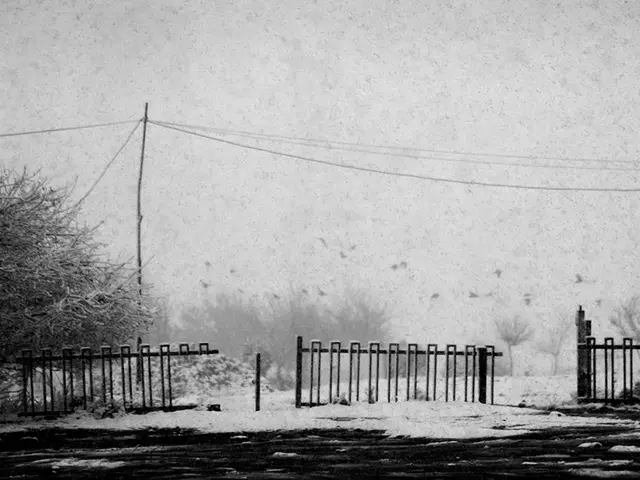Military Action in the Middle East: Israel endorses plan for "subjugation of Gaza"
Israel's Gaza offensive sparks debate as government approves ambitious war plans. On May 5th, Israel announced a significant escalation of its conflict with Palestinian territories, aiming to seize control of Gaza and defeat the Islamist movement Hamas to secure the release of Israeli hostages. This decision comes after 19 months of war, triggered by Hamas's unprecedented attack in October 2023.
The Israeli political-security cabinet endorsed this combat plan in a critical late-night meeting, with the country's military reportedly mobilizing tens of thousands of reservists to support the offensive. Prime Minister Benjamin Netanyahu’s right-wing government emphasizes this operation as a decisive step in eliminating Hamas and enforcing favorable ceasefire terms.
Renewed International Controversy
The proposed plan does not come without controversy. Communications Minister Shlomo Karhi reacted enthusiastically, stating, "This is the right plan – now it must be implemented with vigor, coherence, and without hesitation." However, critics express grave concerns about the plan's potential for humanitarian disaster and fresh waves of violence.
In addition, Netanyahu reaffirmed his support for the Trump plan, proposing that Gazan inhabitants voluntarily evacuate to allow for US-led reconstruction efforts, aiming to transform Gaza into the "Riviera of the Middle East." The plan, initially met with international outrage, has persisted as a topic of discussion within Israeli authorities.
Humanitarian Concerns and Severe Conditions
Concurrently, the Israeli government has approved "humanitarian aid" for Gaza, considering the critical food shortages afflicting the small territory for weeks. The government claims that current food supplies are sufficient; however, international aid organizations and Gazans report continued distress due to supply-chain disruptions.
Collateral Damage and Genocide Allegations
Critics accuse Israel of instigating conditions that could lead to the physical destruction of Gaza's population, a genocidal act. A two-month-long blockade has exacerbated a humanitarian crisis by blocking essential aid to the trapped inhabitants, leading Amnesty International to denounce the siege as unlawful collective punishment.
The latest developments in Israel's Gaza conflict suggest a possible intensification of hostilities, controversial strategic objectives, and potentially devastating humanitarian consequences for both Israelis and Palestinians. As the political landscape shifts and tensions rise, it remains to be seen how events will unfold in the days and weeks ahead.
- The Israeli government's approval of the ambitious war plan to seize control of Gaza and eliminate Hamas has sparked international controversy, with many expressing grave concerns about potential humanitarian disasters and fresh waves of violence.
- Critics have accused Israel of instigating conditions that could lead to the physical destruction of Gaza's population, a genocidal act, due to the ongoing blockade and a two-month-long siege deemed unlawful collective punishment by Amnesty International.
- Concurrently, the Israeli government has approved "humanitarian aid" for Gaza amidst critical food shortages in the small territory, but international aid organizations and Gazans report continued distress due to supply-chain disruptions, raising questions about the government's claims of sufficiency in current food supplies.
- Communications Minister Shlomo Karhi expressed enthusiastic support for the combat plan, emphasizing the need for vigor, coherence, and immediate action, while Prime Minister Benjamin Netanyahu's government maintains this operation as a decisive step towards eliminating Hamas and securing favorable ceasefire terms.








